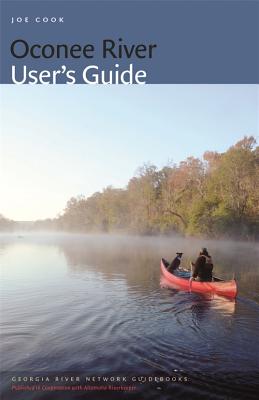From its small headwaters in Hall County, Georgia, the North Oconee winds nearly seventy miles, tumbling over granite outcroppings at Hurricane Shoals and on to Athens, where it meets the Middle Oconee. From there, the Oconee courses 220 miles through east-central Georgia to meet the Ocmulgee convergence near Lumber City, forming the Altamaha River, which flows to the Atlantic Ocean. As the Oconee’s importance as a recreational amenity has grown over the years, University of Georgia students and instructors, the Altamaha Riverkeeper, Georgia River Network, Upper Oconee Watershed Network, and the North Oconee River Greenway have worked together to create a plan for water trails and recreational trails along the river as it flows through Athens.
In the Oconee River User’s Guide, both novice and experienced water sports enthusiasts will find all the information required to enjoy the river, including detailed maps, put in and take out suggestions, fishing and camping locations, mile-by-mile points of interest, and an illustrated guide to the animals and plants commonly seen in and around the river. Daytrippers will enjoy Joe Cook’s fascinating description of the cultural and natural heritage of this richly diverse waterway.
The Oconee River is home to seventy-four species of fish, including the Altamaha shiner, found only in the Altamaha River basin, as well as thirty-seven species of salamanders and frogs and forty-three species of reptiles, including the American alligator, found in the lower Oconee downstream of Milledgeville.
FEATURES:
an introduction and overview of the river
chapters describing each river section with detailed maps and notes on river access and points of interest
a compact natural history guide featuring species of interest found along Georgia’s rivers
notes on safety and boating etiquette
a fishing primer
notes on organizations working to protect the river












